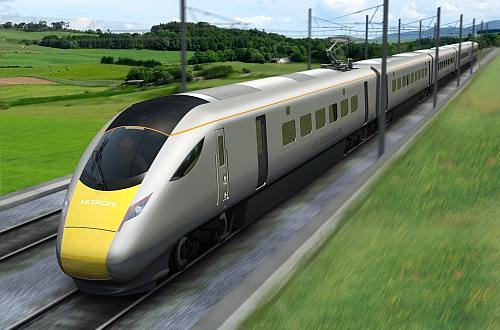The onboard server will transmit all operational data between the train and trackside, including diagnostics from the Train Management System, energy consumption, seat reservation, and timetable information. The server uses Nomad's R3500 router for communications, connecting through multiple 3G networks.
Hitachi will deliver a total of 596 Super Express Train (SET) vehicles, which will replace most of the 200km/h High Speed Trains (HSTs) used on the Great Western Main Line (phase 1) and East Coast Main Line (phase 2). The fleet of 92 electric and bi-mode trains will be maintained at new depots in Swansea, Bristol, London (North Pole) and Doncaster. Under the fixed-price train provision agreement, Hitachi will maintain the fleet for 27.5 years.
The initial phase comprises 21 nine-car electric trains and 36 five-car bi-mode trains for the Great Western franchise (369 vehicles), while the second phase includes 12 five-car electric trains, 10 five-car bi-mode trains, and 13 nine-car bi-mode trains for the East Coast franchise (227 vehicles). Financial close was reached last July on phase 1, although phase 2 has yet to reach this stage of the procuremen processt.
The first four trains, all bi-mode five-car sets, will be assembled at Hitachi's Kasado plant in Japan before final assembly moves to a new purpose-built facility at Newton Aycliffe in northeast England.
The first train for Great Western will be completed in June 2014, and test operation on the British network is due to begin in May 2015. The trains will enter service on the Great Western Main Line from April 2017.
Nomad has already supplied onboard servers to Hitachi for the fleet of 225km/h class 395 emus, 29 of which are in service with Southeastern.

